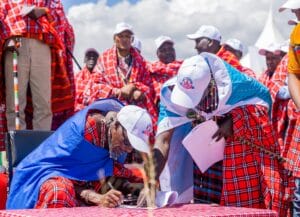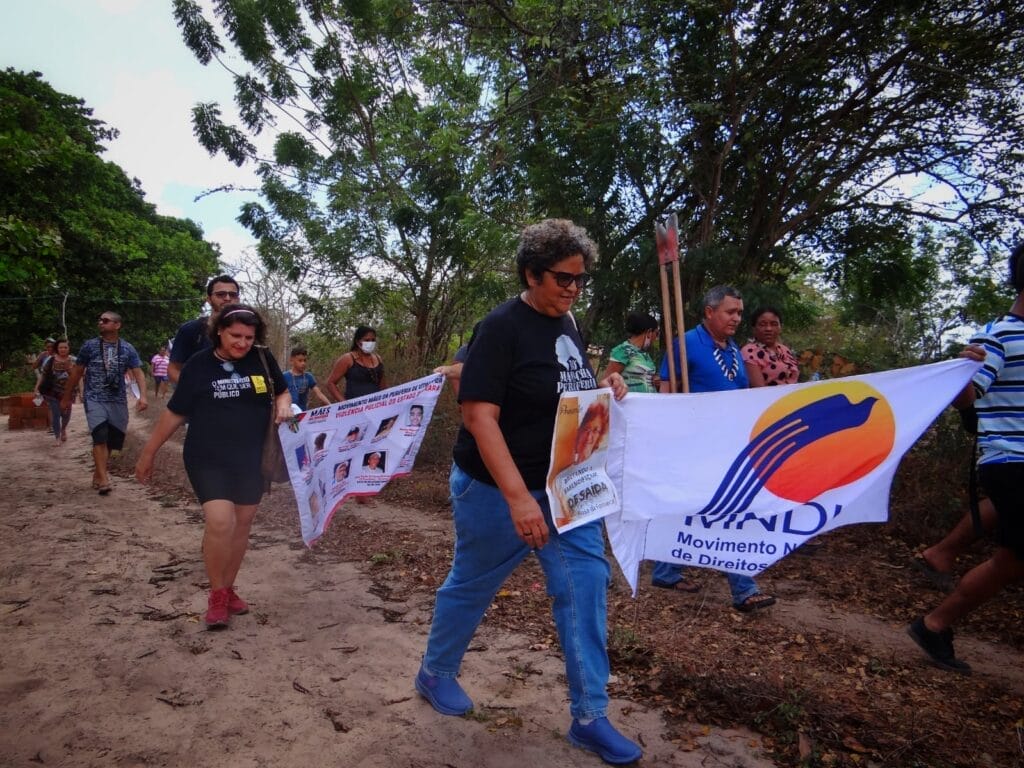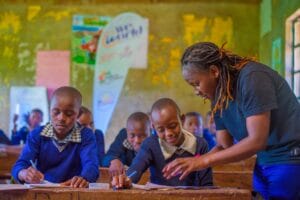
We have just closed our project "Seeds of Protection," a program funded by the European Union aimed at strengthening the capacity of defense, promotion and protection of human rights defenders and civil society organizations in the territory that work on issues related to human rights violations and attacks on fundamental freedoms across 21 states of Brazil.
Our intervention has extended to indigenous peoples, LGBTQI+ collectives, environmental activists, and residents of densely populated urban areas to increase their capacity for advocacy and social actions. 75 percent of the 7,540 activists involved have been women, confirming our commitment to gender equity and women's empowerment to amplify the international advocacy network for human rights, equality, and legality.
We had the pleasure of interviewing Lúcia Albuquerque, a human rights activist who participated in the project.
Who is Lúcia Albuquerque?
Lúcia Albuquerque do Carmo is a black woman, raised in the periphery of the Greater Bom Jardim region, Fortaleza – Ceará. I have been a human rights activist since the age of 16, when I began my involvement in the Base Ecclesial Communities (CEBs). In 1994, along with a group of young and adult human rights activists, I founded the Herbert de Souza Center for the Defense of Life, a civil society organization where I guide my political and pedagogical action in defense and promotion of human rights. I am a social worker with a postgraduate degree in human rights, currently serving as the executive coordinator of the Herbert de Souza Center for the Defense of Life (CDVHS), vice-president of the State Council of Human Rights of Ceará, and a representative of ABONG (Brazilian Association of NGOs) and MNDH (National Human Rights Movement) in Ceará.

What is the context in Brazil that motivated the implementation of this project at the national and local (Ceará) levels?
The situation in Brazil is complex concerning the protection of human rights defenders. People, leaders, and social movements facing different situations and life-destruction systems are historically exposed to threats and violence. In many cases, the state itself violates human rights. Brazil ranks as the 5th country in the world with the highest number of killings of human rights defenders.
This reality calls for the organization of defenders to conceive, develop, and demand protection mechanisms. The Seeds of Protection project has aimed to strengthen not only institutional aspects but also popular protection of human rights defenders, emphasizing network collaboration as a major strategy.
Who is the target audience of the project?
Human rights defenders, individuals recognizing themselves as fighters for the people, grassroots activists, and those organizing to ensure that basic goods for the well-being of each and every one (material, symbolic, spiritual) are guaranteed. This includes various groups such as quilombolas (communities of descendants of Afro-Brazilian slaves who escaped from plantations and founded their own settlements in remote areas throughout Brazil's history), indigenous people, women, LGBTQI+ individuals, youth, the homeless, black leaders, peripheral leaders, environmental leaders, among others.
How have you identified the needs of the audience you followed during the project?
The project included a set of activities with human rights defenders. Each activity involved a broad moment for listening to the demands and issues of the defenders. This is where needs are identified, and further actions are defined based on the reality to strengthen the protection network for defenders.
What challenges or obstacles did the project face?
There have been structural challenges, including historical human rights violations that have worsened in recent years (especially from 2016 to 2022) due to deliberate actions by the national government, such as deforestation in the Amazon, neglect of indigenous peoples, firearm legalization, weakening of public policies, and fragility of protection programs, among others.
How have these challenges been addressed, and what lessons have been learned?
Challenges are tackled with various strategies, including educational processes, advocacy actions, influencing local governments, and organizing networks that contribute to popular protection of defenders. Coordinated solidarity actions remain the primary strategy for popular protection.
Lessons learned include the ongoing popular mobilizations for the defense of life despite challenges and adverse circumstances; the need for support to strengthen the capacities of social movements to recreate dreams, struggles, and a new way of living. Educational processes in popular protection are a fundamental tool to empower human rights subjects. Continuous dialogue, cooperation, and the practice of love must be constants in our human rights activist practice to defend and promote life.
As WeWorld in Brazil, we are committed to keep working in the human rights protection along with our stakeholders, to protect the rights of those who struggles every day to protect others’ rights, and well as those of the environments.
Learn more on our projects in Brazil: https://www.weworld.it/en/what-we-do/global-projects/brasile



